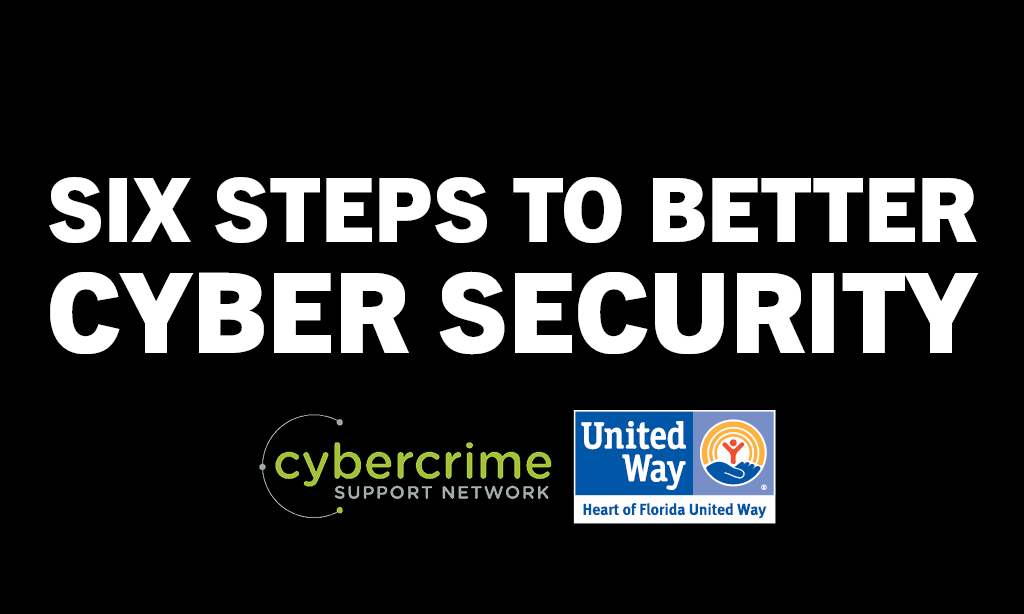By Guest Author M. Batchelor
As more and more people continue to work from home, school from home, and even socialize from home, it has become even more important to secure our systems against online crimes. Cybercrime can affect anyone, so reinforcing your security after a crime has occurred is an important step to prevent revictimization. Here are six ways to keep secure:
SIX STEPS TO BETTER CYBER SECURITY
Protect accounts with strong authentication:
Adding two-factor authentication (2FA) to your email or online accounts greatly increases your security. Some sites offer this automatically, others require you to opt-in. To see if your favorite websites support 2FA or learn how to opt-in, check out www.twofactorauth.org. Email accounts without 2FA are more likely to be hacked. For more information on what to do if this happens visit the Hacked Email Account page on FraudSupport.org.
Use unique passwords:
The longer and more original your password is, the safer you will be. One tip is to use a phrase instead of a word. Choosing a phrase that means something to you makes it easy to remember but hard for hackers to break. If you have a lot of passwords, try using a password manager to keep track. Try to avoid reusing passwords. Finally, avoid these commonly used, but not very secure passwords.
Keep software updated:
Have you been putting off updating your laptop or other devices? Don’t wait! Very often, these updates are security related and can patch holes that criminals use to gain access to your system. If your computer is running slow, this may be a sign that your computer has been hacked. Take a look at this Hacked Computer page to learn more about your next steps.
Avoid phishing attempts:
If an email looks suspicious, it probably is. Avoid clicking on links and attachments that don’t look right. Malicious emails are a common way criminals gain access to networks. Cybercrime Support Network and Google have created www.ScamSpotter.org to share three “golden rules” to recognizing and avoiding online scams. Take the quiz and see how scam savvy you are.
Protect mobile devices:
Our phones contain a huge amount of personal information, including private messages, health information, passwords, and financial information. It’s important to keep them safe. Remember to lock your phone when not in use and avoid sharing your pass code. In the event of a hacked cell phone or smartphone, it is important to delete personal data from your phone.
Use trusted security tools:
It’s always a good idea to add an extra layer of security to your devices. Virus scanners, malware detectors, and virtual private networks (VPN) are all highly recommended. If you have been affected by any type of cybercrime such as identity theft, financial or purchase scams, or imposter scams it is vital to report the crime and to install a trusted security tool for the future.
Share these tips with friends and family. If you or someone you know have experienced a cybercrime or want more information about how to report, dial 211 to speak to someone or visit www.fraudsupport.org for more information.









